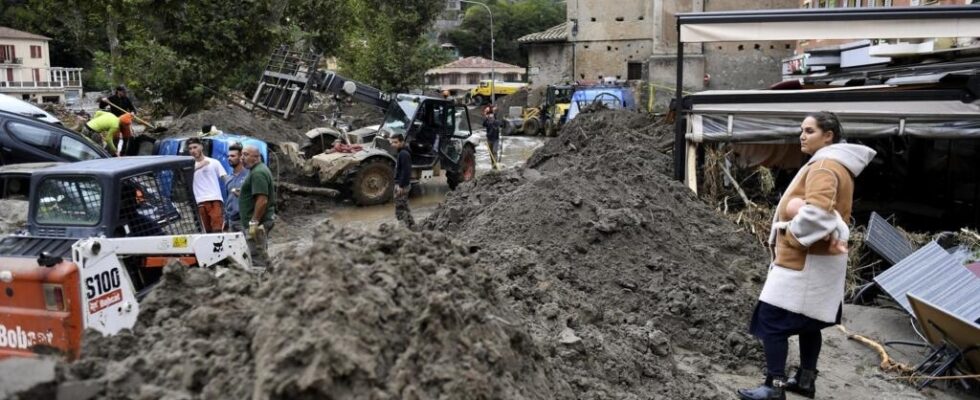The French Roya tunnel reopens on Monday July 1, four years after storm Alex which destroyed it following a landslide and the release of downpours of water. The event served as an example of phenomena that repeat themselves with the consequences of global warming and which undermine the country’s infrastructure. This is particularly true for roads: bridges and tunnels are particularly exposed.
2 min
In October 2020, the storm Alex ravaged southern Europe. Torrential rains, wind and landslides killed 11 people in France, and caused several billion euros of damage. Four years later, the tunnel Roya Valleydestroyed during storm Alex, will reopen.
But the question of adapting infrastructures to such phenomena remains raised, especially since such events will be more frequent and more intense, boosted by global warming. Bridges thus appear particularly vulnerable: of the more than 200,000 existing in France, one in four is damaged and requires upgrading work.
Infrastructure exposed to bad weather
The roads are also exposed. The floods at the start of the year in the north of France showed this: 10% of the local network was then cut or damaged. Drought and heat also pose a threatThey crack and deform the road surfaces.
This phenomenon has been growing for several decades. To protect against it and adapt, the bill is expected to be high. A 2021 study estimated the funds needed by 2050 for the million kilometers of the French road network at 22 billion euros and another 12 billion for bridges.
Socio-economic impacts with isolated hamlets
When a road must close, “ the socio-economic impacts can be considerable with disruptions in service, access to health, communication “, explains Sophie Cahen, from the National Federation of Public Works (FNTP), which brings together construction companies. Each time, the roads, with pieces of roadway collapsing, had to be closed for several weeks, isolating certain hamlets.
” We know about torrential floods and forest fires, but they are becoming more frequent. Territories that were once safe are no longer so », summarizes David Zambon, deputy general director of the Center for studies and expertise on risks, environment, mobility and planning (Cerema), a public establishment for the adaptation of territories to climate change.
Read alsoFrance: Climate disasters cost insurers 6.5 billion euros in 2023
